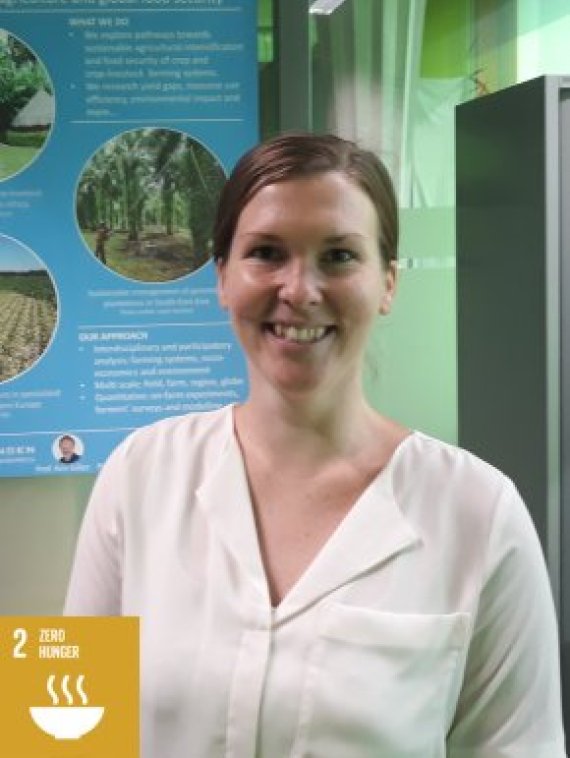© Albert Sikkema
On 30 and 31 August, WUR will be hosting the SDG conference to find out how we can implement the sustainable development goals of the United Nations. Senior and young speakers from around the world will be giving speeches and attending workshops. What do these participants want to achieve?
Today part 1: Linda Veldhuizen, postdoc at WUR and network coordinator Sustainable Agriculture & Food Systems.
How are you involved in achieving the SDG
s, in particular eradicating hunger?
‘I work as a postdoc researcher at the Plant Production Systems group at WUR and as network coordinator for the UN SDSN thematic network on Sustainable Agriculture & Food Systems, which focuses on SDG 2. More specifically, I’m on the Missing Middle, a concept that points to the distancing between production and consumption, and between global goals and local contexts. We propose that this Missing Middle needs to be addressed through more collaborative action in food systems to deal with externalities and contribute to the SDGs.’
In your opinion, which
concrete action or measures will have a significant impact on achieving these SDGs?
‘To achieve SDG 2, we not only need to address agriculture and nutrition but also related challenges such as poverty, inequality and climate change. More holistic approaches are needed to address such interlinked challenges in a food system simultaneously. This requires multiple interventions that can only be realized when actors in the food system align their actions towards a common goal. The role that we as researchers have taken on is to assist these actors in setting goals that align with the SDGs and match local contexts, and exploring pathways towards those common goals.
One important step towards food system transformation that I see is behavioural change, especially in relation to shifting from unhealthy to more healthy diets to curb obesity. Another step is more local value creation in developing countries to stimulate local economic development, improve dietary quality, create employment and entrepreneurial opportunities for youth, and reduce vulnerability to price fluctuations in international markets. Concrete measures that most of us can take are reducing your consumption of meat and highly processed foods, reducing your food waste – soups and quiches are great for leftovers – and paying better prices for your food to support farmers everywhere.’

